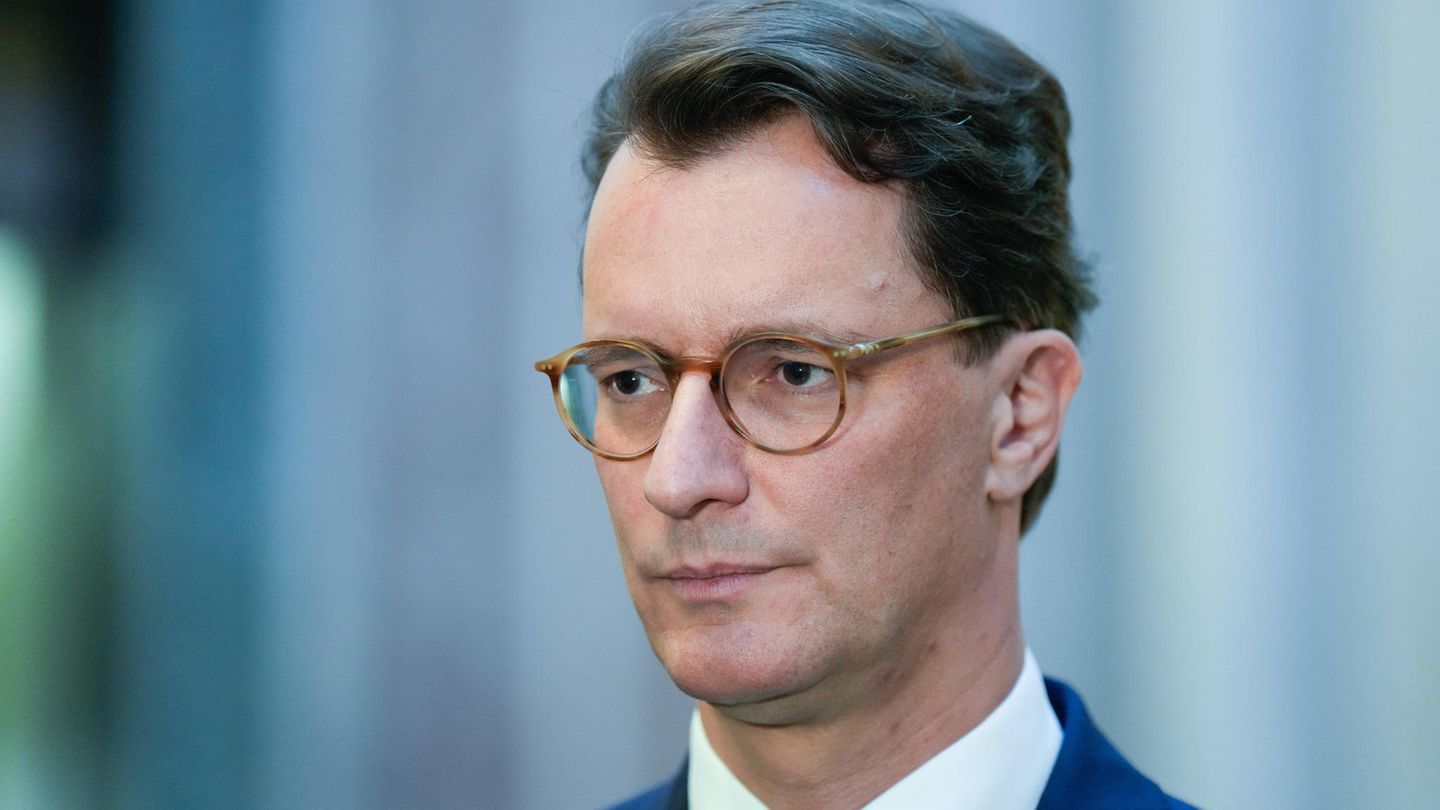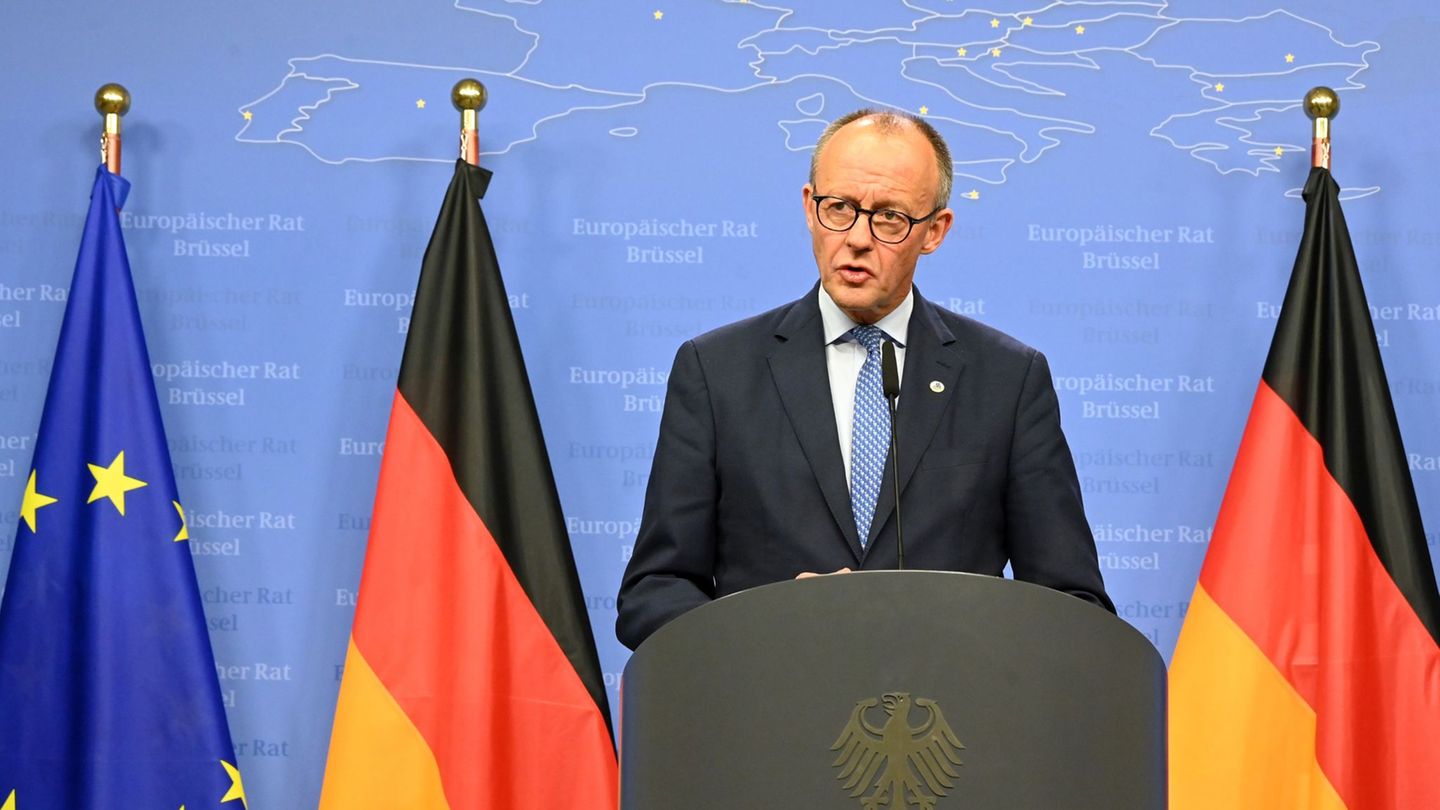Migration policy was the topic at the meeting between the federal government and the prime minister. The day after it was clear: Hardly anyone was satisfied with the decisions.
North Rhine-Westphalia’s Prime Minister Hendrik Wüst (CDU) is not satisfied with the results of the federal-state conference on asylum policy. “In migration policy, speed is needed instead of time,” he said on Wednesday after the Prime Minister’s meeting with Chancellor Olaf Scholz (SPD) in Berlin.
The CDU politician complained that progress was only progressing at a snail’s pace, especially when it came to the issue of asylum procedures in third countries. The federal government had already anchored a corresponding audit mandate in its coalition agreement in 2021. “Nothing happened,” criticized Wüst.
Germany is facing major challenges. This particularly includes the question of migration and integration. “In a situation like this, leadership is needed,” emphasized the head of government of the most populous federal state. “We expect the Chancellor to make this issue a top priority.”
Prime Ministers disagree after migration summit
Wüst’s assessment differed significantly from the conciliatory words of his Hessian counterpart and party friend Boris Rhein. He is chairman of the Prime Minister’s Conference (MPK) and expressed his satisfaction after the meeting: “I could not have imagined that we would ever have achieved so much together, that we would have brought so much speed to the issue.”
Wüst countered: “You don’t have to be a clairvoyant to know that the migration pressure on Germany will be enormous this year too.” In a major effort, the federal and state governments made good decisions together at the beginning of November. “That was 17 weeks ago,” Wüst calculated. The federal government’s inventory of implementation was sobering on Wednesday. “The list of unfinished homework by the traffic light government is extremely long,” said Wüst. “The federal government obviously did not recognize the seriousness of the situation.”
Migration 2023
Most people from these countries apply for asylum in Germany
Municipalities and states are dissatisfied with decisions
Municipalities and districts have also expressed dissatisfaction with the results of the federal-state consultations on migration policy. “The meeting once again brought no real progress in migration policy,” said the President of the German District Association, Reinhard Sager (CDU), to the editorial network Germany (RND, Thursday). “That’s difficult to understand.” The district council does not see any noticeable intensification of efforts in the long-announced repatriation offensive. “Hardly any agreements with possible host countries, hardly any returns to Turkey, although we have low recognition rates here, no other safe countries of origin,” Sager listed.
The 16 Prime Ministers discussed migration and asylum policy with Chancellor Olaf Scholz (SPD) on Wednesday. There were no new decisions. However, the states demanded clarity from the federal government about a possible relocation of asylum procedures to countries outside the EU. In a paper published after the meeting, they asked the traffic light government to present initial results at the next federal-state conference on June 20th. According to the wishes of the states, it should soon be clear when the agreed payment card for asylum seekers will arrive. In their paper, the heads of government of the federal states call on the federal government to ensure that the Bundestag quickly passes a corresponding draft.
“More speed in the migration transition”
Sager generally called for more speed. “We need much more speed in the migration transition.” The districts expected clear signals “that the number of refugees is likely to fall”. It is clear that “we cannot handle a volume of currently well over 300,000 people a year,” said Sager. There needs to be a discussion about the “dimension of what is affordable”.
The German Association of Cities and Municipalities also considers the results of the meeting to be inadequate. They would have wanted “further clear steps to sustainably relieve the burden on municipalities,” said managing director André Berghegger to the “Rheinische Post” (Thursday). “The Chancellor is not wrong when he sees Germany on the right path. What is important now is that the decisions made in November are now implemented consistently and quickly.”
Migration summit takes stock
The last migration summit took place in November. At the most recent meeting on Wednesday, the Chancellor and the incumbent chairmen of the Prime Minister’s Conference, Hesse’s Boris Rhein (CDU) and his Lower Saxony deputy Stephan Weil (SPD), drew a positive interim assessment of the implementation of the decisions made at the time.
Berghegger also believes that further efforts are necessary. “In view of the continued very heavy burden on municipalities in terms of reception, accommodation and care, we expect further steps from the federal and state governments that will be effective quickly. A decision to remain in the initial reception centers would have been part of this, as would a commitment to further flexibility Opportunities for integration into the labor market,” said Berghegger. “It should be possible here for language and integration courses to take place parallel to starting work. We must quickly take effective steps in migration policy to relieve the burden on municipalities. This means controlling, ordering and limiting.”
Union calls meeting “bitter disappointment”
There was also criticism of the meeting from the Union. The deputy chairwoman of the CDU/CSU parliamentary group, Andrea Lindholz, described it as a “bitter disappointment”. The Chancellor was apparently not prepared to do more than simply take stock of the situation. Bavaria’s Prime Minister Markus Söder (CSU) had previously made similar statements.
Lindholz went on to say: “The resistance to further measures is a slap in the face to all those who no longer know how to accommodate, care for and train asylum seekers on site in the municipalities.” She demanded that the federal government use all scope to reduce asylum seeker benefits and declare other countries to be safe countries of origin. In addition, voluntary admission programs and family reunification with those entitled to subsidiary protection must be stopped.
Source: Stern
I have been working in the news industry for over 6 years, first as a reporter and now as an editor. I have covered politics extensively, and my work has appeared in major newspapers and online news outlets around the world. In addition to my writing, I also contribute regularly to 24 Hours World.




